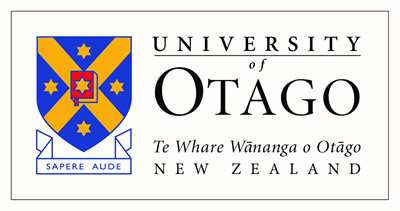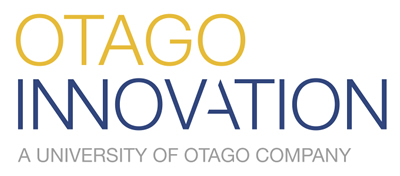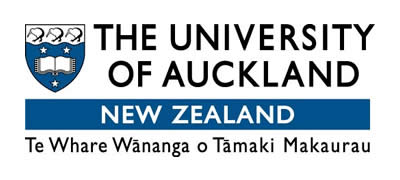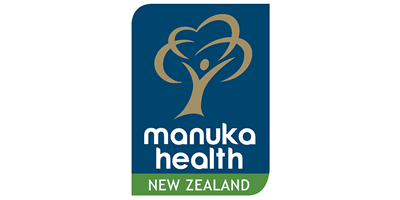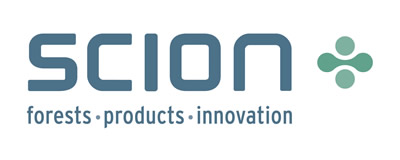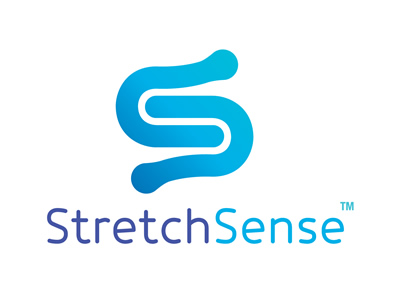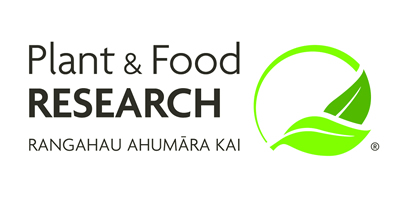2016 Awards Finalists
The KiwiNet Awards celebrate heroes in research commercialisation — those individuals and organisations whose best practice approach is changing the innovation landscape in New Zealand. We congratulate the 2016 finalists!
Norman Barry Foundation Emerging Innovator Finalists
This award recognises an upcoming entrepreneurial researcher who is making outstanding contributions to business innovation or is creating innovative businesses in New Zealand through technology licencing, start-up creation or by providing expertise to support business innovation.
 Dr Anna Henning
Dr Anna Henning
Victoria University of Wellington & Boutiq. Embracing a Boutiq opportunity: Leading nanomaterials from the lab to the world
 Dr Daniel Holland
Dr Daniel Holland
University of Canterbury. Mathematics Plus Measurements Equals Economic Benefit
 Dr Carla Meledandri
Dr Carla Meledandri
University of Otago, The MacDiarmid Institute, Harnessing silver nanoparticles to treat and prevent dental disease

Dr Anna Henning
Dr Anna Henning, Victoria University of Wellington & Boutiq
Embracing a Boutiq opportunity: Leading nanomaterials from the lab to the world
Dr Anna Henning has enthusiastically embraced the commercialisation of her own nanomaterials research and that of her wider research group, by taking on lead responsibility for technical R&D, marketing and sales activities within Victoria University of Wellington start-up company Boutiq Science Ltd. Dr Henning graduated with a PhD in Chemistry, on the synthesis of shaped bimetallic nanocrystals for use as catalysts, from Victoria University of Wellington in 2013. Her research and the research from her nanomaterials group (supervised by Associate Professor Richard Tilley) was identified as having commercial application. She has since made a swift transition from full time PhD researcher to head of sales and product development for Boutiq, readily gaining in commercial acumen and excelling in her new role. Under her technical management and with CEO Paul Atkins, Boutiq already have a range of industry customers and partners for its unique nanoparticles which are available to scientists and engineers wishing to integrate cutting edge materials into their research and development. The biomedical market is a focus with cancer diagnostics, imaging agents, and drug delivery identified as key areas.
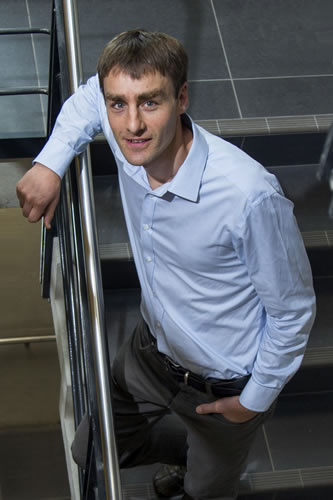
Dr Daniel Holland
Dr Daniel Holland, University of Canterbury
Mathematics Plus Measurements Equals Economic Benefit
Dr Daniel Holland has a strong track record of applying novel measurement and mathematical analysis techniques to improve efficiency in the chemical industries. He graduated with a BE(Hons) with First Class honours from the University of Canterbury. Since completing his PhD in Chemical Engineering at the University of Cambridge in 2006, he has worked with major international companies as well as specialist technology companies. Measurement techniques he developed for Oil and Gas Measurement in the United Kingdom led to the production of a new sampling product to measure the water distribution in flows of oil and water. Since returning to New Zealand in 2015, he has actively pursued opportunities to drive business innovation within New Zealand companies, building on his overseas success. He has recently established a new programme of research with Magritek, a developer of cryogen-free, compact Nuclear Magnetic Resonance (NMR) and Magnetic Resonance Imaging (MRI) systems that work on the benchtop. He is also working with Eko360, a company specialising in innovative environmental products for growing plants, and seeks to use a mathematical model and novel measurements to rapidly prototype controlled release fertilisers. Cost-effective controlled release fertilisers have the potential to improve nutrient use efficiency especially with nitrogen fertilisers. The outcome being greater agricultural productivity while reducing leaching from the dairy and forestry sectors in New Zealand and internationally.
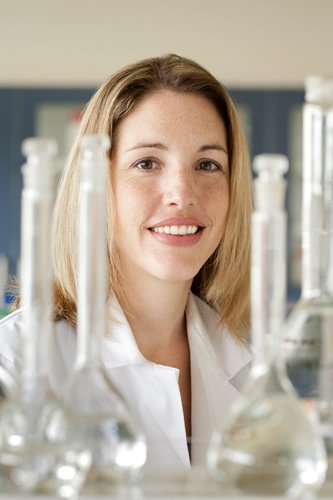
Dr Carla Meledandri
Dr Carla Meledandri - University of Otago, The MacDiarmid Institute
Harnessing silver nanoparticles to treat and prevent dental disease
Carla Meledandri received her PhD in Chemistry at Dublin City University in 2009 specialising in nano-materials. Since completing her PhD, Carla’s career has focused on pushing the frontiers of science to solve real world problems. The result is a rapid accumulation of commercial opportunities, including a technology licenced to a multinational dental company. Having achieved such great progress so early in her career, Carla is certainly an inspiration to other early career scientists and is well on the way to transforming her science into excellent economic outcomes for New Zealand.
Baldwins Researcher Entrepreneur Finalists
This award recognises an entrepreneurial researcher who has made outstanding contributions to business innovation or has created innovative businesses in New Zealand through technology licencing, start-up creation or by providing expertise to support business innovation.
 Dr Robert Hill
Dr Robert Hill
Bio-Protection Research Centre, Lincoln University. Helping key industries to save millions - boosting plant growth and keeping disease under wraps
 Dr. Stephen Moratti
Dr. Stephen Moratti
University of Otago - Healing Gels from Natural products
 Associate Professor Cather Simpson
Associate Professor Cather Simpson
University of Auckland, From Sensors to Sperm Sorting - Lighting up NZ’s Economy with Lasers
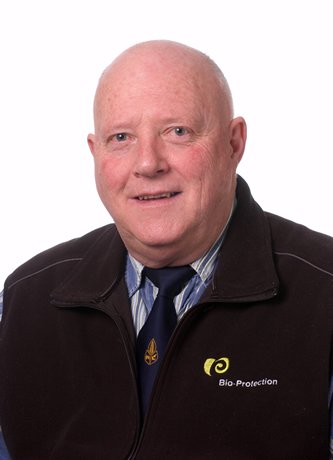
Dr Robert Hill
Dr Robert Hill - Bio-Protection Research Centre, Lincoln University
Helping key industries to save millions - boosting plant growth and keeping disease under wraps
Dr Robert Hill, Principal Research Officer, Bio-Protection Research Centre, Lincoln University has developed a breakthrough, environmentally-friendly approach to boosting plant growth and controlling disease in the forestry industry. If his work is adopted industry-wide, New Zealand forest owners could save around $50 million a year. His method, which uses a fungi known as Trichoderma, has already done great things for the Malaysian timber company, Grand Perfect. Their Acacia nurseries no longer use fungicides and crop mortality has dropped from 50% to 10% or less, not to mention the fact that seedlings are ready sooner than usual for forest plantations. Two of New Zealand’s largest export crops – timber and kiwifruit – have also benefited from this work. As part of a NZ Forest Owners Association funded project, Dr Hill’s approach led to a 20% rise in pine tree growth rate and a 33% drop in crop mortality. Zespri has invested in Dr Hill’s technology to deal with the significant risk that PSA disease poses to the New Zealand kiwifruit industry. Several Trichoderma that increase growth and reduce disease losses have already been identified. The potential benefit to the New Zealand kiwifruit industry is great.
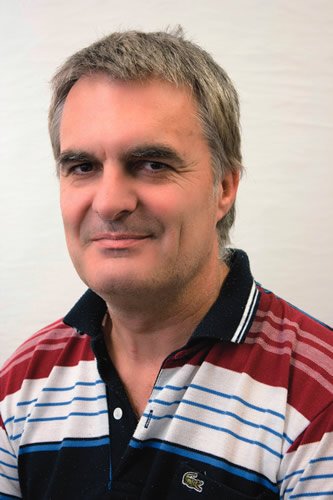
Dr Stephen Moratti
Dr Stephen Moratti - University of Otago
Healing Gels from Natural products
Dr Stephen Moratti is in charge of a team at the University of Otago that has developed and commercialized an exciting new gel material for post-surgical healing based on natural polymers, soon to be launched in the US. Using private capital a company has been formed and manufacturing has started in Wellington, with the product to be launched in the US later this year. This gel dramatically reduces complications such as adhesions, infection and bleeding in many types of surgeries and was developed entirely through government and university funding.
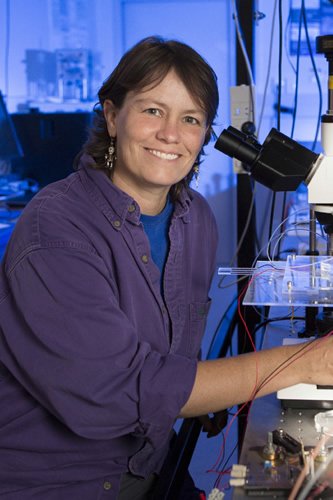
Associate Professor Cather Simpson
Associate Professor Cather Simpson - University of Auckland
From Sensors to Sperm Sorting - Lighting up NZ’s Economy with Lasers
Associate Professor Cather Simpson is a physicist and chemist at the University of Auckland, with specific expertise in lasers and photonics. While photonics can be a very high-tech domain requiring a formidable understanding of fundamental science, Cather also has a deeply entrepreneurial streak that has led to significant commercial outcomes over the past 6 years. In 2010 she founded the Photon Factory, which has attracted over $2.5m of commercial contracts. This has more recently led to the formation of two new startup ventures; Engender Technologies Ltd, which employs 6 staff and has attracted significant private investment, and Orbis Diagnostics Ltd, which has also attracted investment. Engender Technologies Ltd is a spin-off company commercialising the use of microfluidic and photonic technology to improve sorting of sperm by sex for the dairy industry. Cather is the founding scientist and chief science officer. The new technology will improve both efficiency of sorting and performance of sex-sorted sperm by avoiding electric fields and reducing shear stress on the sperm membrane during processing. Orbis Diagnostics Ltd is developing exciting new technology for the dairy industry – to carry out “point of cow” analyses of milk composition in the milking shed. With such an impressive track record of commercial engagement, Cather demonstrates how University researchers can use cutting edge science to power business innovation and grow the economy.
MinterEllisonRuddWatts
Research & Business Partnership Finalists
This award recognises the deeply embedded working relationship between a research organisation and business that delivers significant commercial value for New Zealand.
 University of Canterbury & Canterbury Scientific
University of Canterbury & Canterbury Scientific
Biotechnology partnership
 Callaghan Innovation & Manuka Health
Callaghan Innovation & Manuka Health
CycloPower
 Scion & Sonae Industria
Scion & Sonae Industria
Woodforce
University of Canterbury & Canterbury Scientific Ltd: Biotechnology partnership
Partnering on long term and higher risk research projects to address significant, global diagnostic health problems
The University of Canterbury and Canterbury Scientific have successfully collaborated on projects to improve diagnosis of complications arising from diabetes. These collaborations have grown into a strong partnership addressing diagnostic health issues in diabetes, preeclampsia, and hypertension with an aim of developing new biotechnology products. Our partnership supports Canterbury Scientific’s R&D challenges and goals, provides a clear path to market for new IP developed at the University of Canterbury and engages undergraduate and postgraduate students to provide them with relevant, industry experience and encourage entrepreneurial thinking at the University of Canterbury. Canterbury Scientific develops and produces the highest quality freeze-dried and ready-to-use liquid haemoglobin controls available. Its major product, the haemoglobin A1c (HbA1c) control, is relied on by tens of thousands of people around the world to help manage their diabetes.
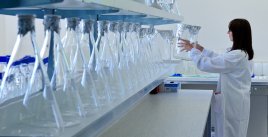
Callaghan Innovation & Manuka Health: CycloPower
CycloPower™ dietary supplements manufactured and powered by a partnership between Manuka Health and Callaghan Innovation
Manuka Health New Zealand (MHNZ) produce a range of health products and dietary supplements using natural NZ ingredients such as manuka honey and propolis. Callaghan Innovation’s Integrated Bioactive Technologies (IBT) group transform biological resources into high value products such as nutraceuticals, cosmeceuticals and food ingredients. Together they have partnered to power the growth of MHNZ through commercially driven research and development. The result is a new technology platform CycloPowerTM that has produced a suite of products based on encapsulating the bioactives found in manuka honey and in propolis inside cyclodextrins that allow controlled release of the bioactives at the point where they are needed in the body. This has resulted in four patents and a whole new area of business with strong sales. This is proof of what can happen when small companies gain access to experts, plant and equipment when both partners share a common goal.

Scion & Sonae Industria: Woodforce
Working with an International partner to commercialise high performance wood fibre-reinforced plastics.
The Scion and Sonae partnership has successfully established a commercial value chain for wood fibre-reinforced plastics. Plastics with wood fibre are stronger and stiffer than plastics alone, but, until recently, handling the bulky fibre has not been commercially feasible. Scion’s patented process forms wood fibre into “dice” that can be made in existing MDF plants and easily added to a range of plastics. With most opportunities for composite plastic manufacture being outside New Zealand, Scion looked for an MDF manufacturer with a global reach who could be key party in a complex and unfamiliar value chain. European MDF manufacturer Sonae Industria was granted an exclusive licence for the technology in North America and Europe. Sonae owns and has developed the Woodforce brand. The commitment of both partners working with the full value chain has led to the optimisation of Woodforce and the compounding process, putting the partners in a strong commercial position. End products that meet demands for lighter weight, thermal stability and sustainability are being trialled and approved by major automotive manufacturers. The wide exposure to companies along the value chain has also led to relationships with other manufacturing industries to develop new products.
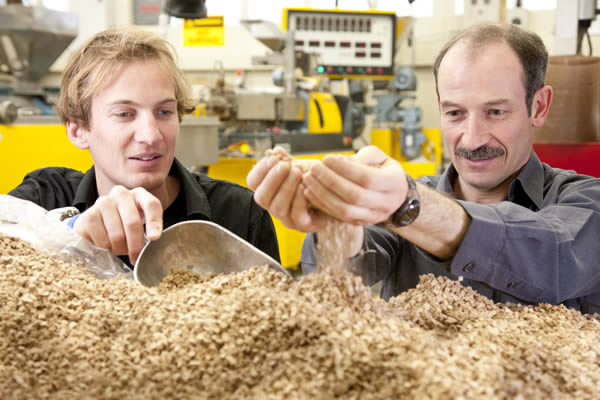
PwC Commercial Deal Finalists
The commercial award celebrates excellence in research commercialisation delivering outstanding innovation performance and the potential for generating significant economic impact for New Zealand.
 StretchSense
StretchSense
Unleashing fashion on technology: making wearable tech invisible
 VitalVegetables®
VitalVegetables®
High value functional vegetables
 ZeaKal
ZeaKal
Commercialization of plant biotechnology in New Zealand
StretchSense: Soft Wear by StretchSense
Unleashing fashion on technology: making wearable tech invisible
Smart clothing makes it simple to control technology using natural gestures. StretchSense makes soft and precise sensors that disappear into wearable items for body motion measurement. We sell into top companies in the wearables, sports, consumer electronics, and virtual reality industries. We have been successfully commercialising research spun out from the Biomimetics Laboratory since incorporation in late 2012.

Plant & Food Research: vitalvegetables®
High value functional vegetables
The Vital Vegetables research programme, in collaboration with Australian research partners and in-market commercial partners has successfully developed a new market for high value functional vegetables that deliver scientifically verified health and well being benefits to consumers. This was achieved through a portfolio of vitalvegetables® products that contain superior vegetables delivering a measurable benefit to the consumer in a standard serving size. We have done this by delivering a new convenience product, with health benefits that are understood by consumers, looks and tastes good, is locally grown, with an acceptable premium. The first five of these products – two coleslaws, two salad mixes and a vegetable medley – launched in New Zealand supermarkets on 1 October 2012 and can now be found across all major food retailers in New Zealand. Based on the NZ success, the commercial partner launched the two coleslaw products in Australia in November 2015.
www.vitalvegetables.co.nz
facebook.com/VitalVegetables

AgResearch - ZeaKal
International spin out supports the commercialization of plant biotechnology in New Zealand
Improving New Zealand’s most important crop, perennial ryegrass has lead two enterprising scientists Dr Nick Roberts and Dr Greg Bryan on an exciting journey of discovery and innovation. Born out of their world leading science is their latest venture a biotechnology startup called ZeaKal. Their company utilizes the technology and skills polished while leading the forage improvement teams at AgResearch. Their next-generation biology focuses on increasing plants’ intrinsic photosynthetic capacity. The plants can therefore harvest more sunlight, fix more carbon dioxide and do so with less water. For farmers, this means better seed and grain yield with forecasted yield improvements by as much as 20 percent.
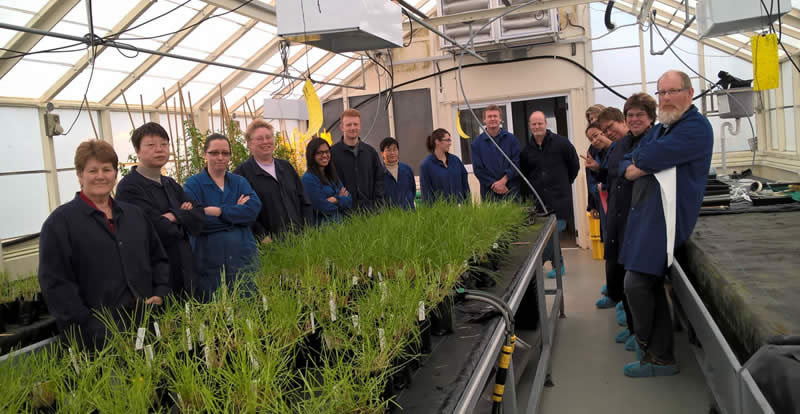
Dr Nick Roberts, Chief Science Officer, ZeaKal and Dr Greg Bryan, CTO, ZeaKal (back centre) pictured with the AgResearch Plant Biotechnology team at their Grasslands Campus





